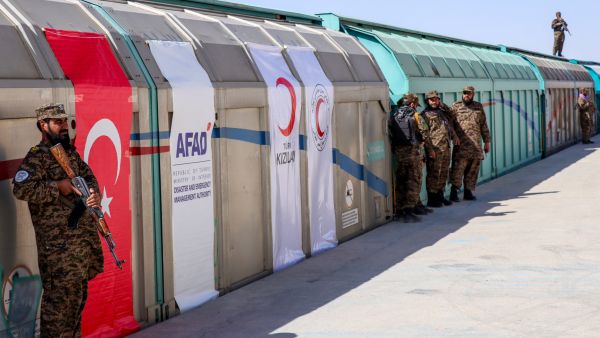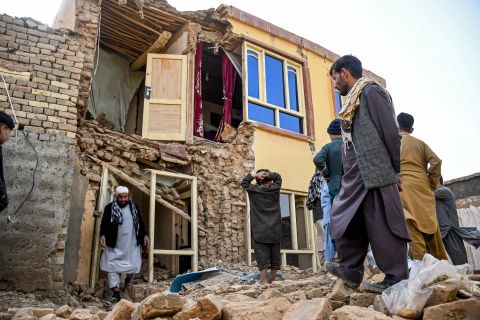ALBAWABA - In a move that stunned regional markets and policymakers alike, Afghanistan has abruptly halted all trade with Pakistan, severing one of South Asia’s most vital commercial lifelines and signaling a potential geoeconomic realignment with far-reaching consequences.
Analysts have referred to the announcement as both a strategic strike and a dangerous economic gamble. It stops the import of food, building supplies, and pharmaceuticals that have long connected Kabul's markets to Islamabad's factories, freezing nearly $2 billion in annual cross-border trade.
The decision comes after weeks of escalating border tensions and violent clashes between the two countries, according to the Afghan Ministry of Commerce. Behind the scenes, however, business analysts perceive something more profound: Kabul's attempt to regain economic control and shift its trade reliance away from Pakistani ports.
A Calculated Risk Passing off as policy
"This is about leverage, not just border politics," Afghan economist Rahmatullah Bashtin stated. Pakistan's topography served as Afghanistan's bottleneck for many years. Kabul is now using that reliance as a deterrent.
It is anticipated that Pakistan will be severely impacted by the action. According to Pakistani export analyst Zahid Safi, nearly 20% of its food and pharmaceutical exports used to cross the border, and supply chain interruptions could result in thousands of job losses.
Afghanistan, however, is also not exempt. Experts anticipate a brief upheaval in its markets, especially in the pharmaceutical sector, where Pakistan provided more than 40% of the nation's medication requirements.
The Look for New Partner
In order to close the gap, Kabul has accelerated negotiations with Iran, India, and Turkey to diversify its suppliers and establish new routes through the ports of Chabahar and Bandar Abbas, thereby avoiding Pakistan's trade routes.
According to former Afghan Trade Minister Anwarul Haq Ahady, "this is a high-risk, high-reward pivot." "If logistics fail, it could either liberate Afghanistan's economy or worsen its inflation crisis."
Afghan officials maintain that the ruling will improve autonomy in the long run. Citing public complaints about the "poor quality and inflated prices" of Pakistani goods, Deputy Prime Minister Abdul Ghani Baradar referred to it as "a necessary reset."
Cross-Border Economic Effects
In the meantime, Pakistan will immediately lose a $1.39 billion export market, which will have an impact on industries like construction and agriculture. Islamabad's exporters warn that production slowdowns and layoffs are already imminent, as hundreds of cargo trucks headed for Afghanistan are stuck at border crossings.
According to South Asia analyst Farah Jalal, "the ripple effect will extend beyond economics." "It's a test of political patience and economic resiliency between two countries whose trade was never just about commerce but also about control."
Government insiders characterize the move as part of a "long game" to realign Kabul's trade orientation eastward — toward Central Asia and the Gulf — despite domestic backlash from Afghan traders who are concerned about growing costs and shortages.
Still unknown, though, is whether Afghanistan is redefining its economic future or running the risk of collapsing for political pride.
Markets throughout the region are currently keeping a close eye on things. What started out as a border dispute has turned into a crucial economic chess game that has the potential to change South Asia's commercial landscape.










